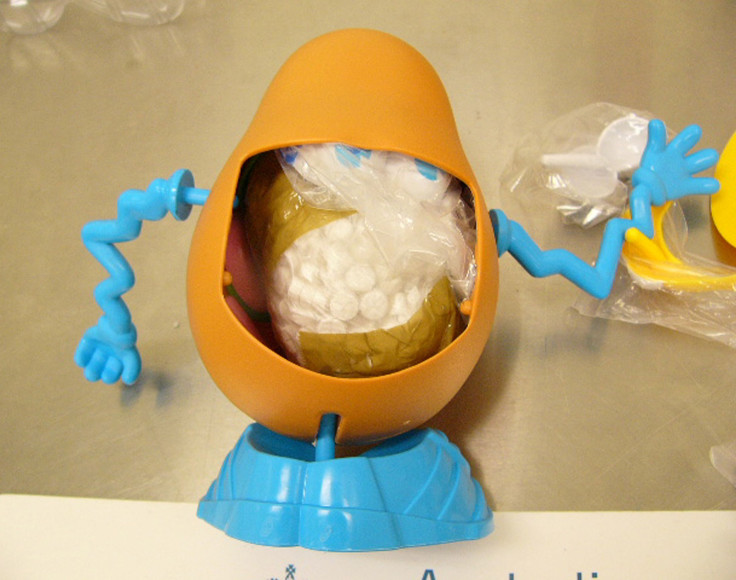Could MDMA Be the Cure for PTSD and Depression?

It is estimated that there are 760,000 people in the United States who have taken MDMA. In the United Kingdom, a country with about one-fifth of the population as the U.S., that number is 500,000. Yet, despite those numbers, little research has been conducted on the effect that MDMA can have on a person's mind. Now one study, funded by the state-owned Channel 4, is aiming to change that, in the hopes that the drug can be used to help cure depression and PTSD.
MDMA, or methylenedioxy-methylamphetamine, was first patented in Germany in 1912 when scientists were looking for a way to control bleeding. American military scientists expanded on their research in the 1950s. In 1976, Alexander Shulgin, considered the Godfather of Ecstasy, took MDMA himself to research its psychoactive properties. "I feel absolutely clean inside, and there is nothing but pure euphoria," he wrote in his journal. "The cleanliness, clarity, and [marvelous] feeling of solid inner strength continued... through the next day. I am overcome by the profundity of the experience."
But its use in therapy, which Shulgin promoted, was quickly overshadowed by its use as a club drug in the 1970s and '80s. Drugs like MDMA were banned in the UK in 1977 and in the US in 1985 due, in part, to highly-publicized tragedies like that of Leah Betts, who died at 18 years old after taking a single ecstasy tablet.
The drug has been controversial. In 2009, David Nutts, then the chairman of the UK's Advisory Council on the Misuse of Drugs, created an uproar in the UK when he said that horseback riding was deadlier than ecstasy was. He was dismissed later that year after he issued a paper that classified drugs by their level of harm; alcohol and tobacco were classified as more harmful than ecstasy and cannabis.
Despite the rifts that MDMA can cause, it has been used in at least one highly publicized case to aid with a psychiatric condition. In 1993, Donna Kilgore was raped by a stranger who burst into her home in Alaska. Her cries alerted the police, who caught the rapist. After the attack, Kilgore attempted to move on with her life - a task made easier by the fact that she barely remembered the attack.
Four years later, Kilgore started having flashbacks, panic attacks and fits of anger. Visits to psychiatrists netted her several drug prescriptions. Some drugs exacerbated the pain while others dulled it. In 2002, a psychiatrist tied her psychiatric state with her rape and diagnosed her with PTSD. According to Kilgore, his experiments with MDMA on her allowed her to "clear the fog so I could see. Down there was guilt, anger, shame, fear. And it wasn't so bad. I thought, 'I can do this.'"
Kilgore's case is just one experience, and there will need to be many more studies on the drug's effects before it can be widely used for therapy. But the Channel 4-funded study is a start. The experiment was led by Val Curran, a psychology professor at the University College London, and Nutt, who is now a neuropsychopharmacology professor at the Imperial College London.
The study involved 26 volunteers, not all of whom will appear on television, and included notable professionals like author Lionel Shriver, actor Keith Allen, and a former member of Parliament. They had two days of tests, one with a placebo and one with MDMA. Their breath and urine were analyzed to ensure that they were clean of drugs and alcohol. Before the pill, they were asked to write down 6 negative and 6 positive memories as well as fill out a series of questionnaires and other medical tests. After taking the pill, participants waited an hour before researchers took a functional MRI of the brain.
It is believed that MDMA makes positive memories more positive and negative memories more negative. Robin Carhart-Harris, who oversaw the experiments, says, "People become very emotionally tender under MDMA, and that is the kind of space which would be ideal in psychotherapy. This would allow people to revisit a traumatic memory and overwrite it or control it."
Researchers are also examining the massive low that ecstasy takers have reported in the days after taking a tablet. They wonder if taking MDMA in a clinical setting - as opposed to in a club, combined with dancing, dehydration and other drugs - might reduce that low. Researchers believe that, because of the uptick in serotonin that the drug causes, the brain may need three days to replenish itself. They will follow and test users for three days after taking either the placebo or the drug.
The program, Drugs Live: The Ecstasy Trial, airs on Channel 4 on September 26 and 27 at 10 pm.



























